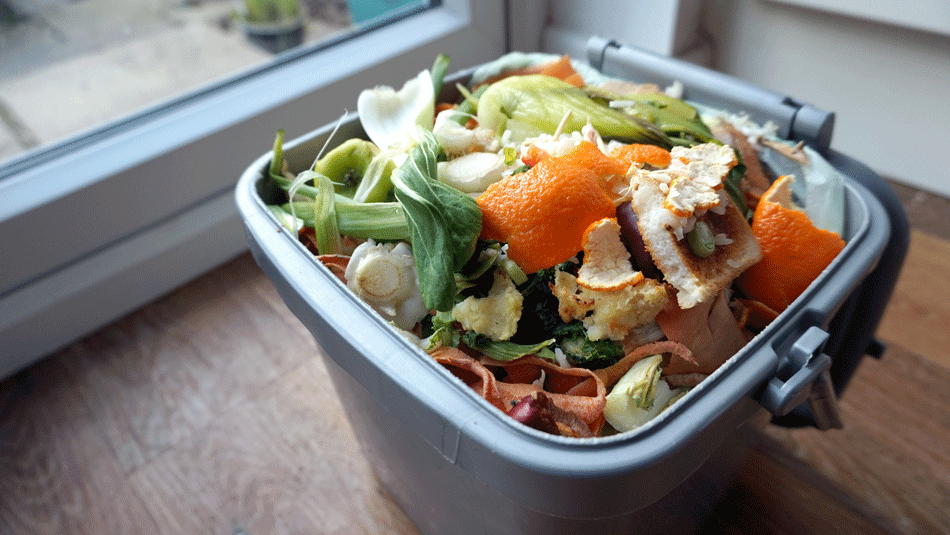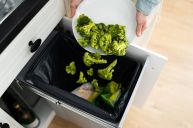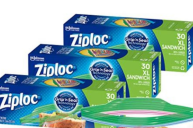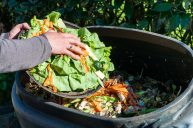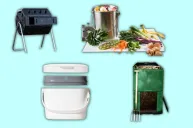It's hard to know what we should recycle at home. At least recycled materials like plastic bottles, clamshell containers, and plastic bags have rules regulated by the recycling center. What about food waste: Are there rules? How can we recycle our food scraps, food past expiration dates, and leftover food items?
Videos by Wide Open Country
While there are no hard-fast and set rules, there are some simple guidelines you can follow to begin reducing your food waste and start your food waste recycling journey. The benefits of knowing what to recycle go beyond simple waste reduction. You can save money by buying less food, reduce your carbon footprint by avoiding the landfill, and support your local community by donating what you can to food banks or those in need.
So stop throwing away those food scraps! Save your citrus peels and coffee grounds, and learn to love your leftovers. Let's dive into some creative ways to reduce food waste and repurpose those leftover into something delicious.
The Dos
Do: Save Your Kitchen Scraps
Most of your kitchen scraps have a second life, even if it is just in the compost bin. Most of your vegetable scraps and organic waste, including celery leaves, broccoli stalks, and onion ends can be saved to make vegetable broth.
I keep a large plastic bag in the freezer to save of my food scraps. When the bag gets full, I know it's time to make a batch of broth during my next food preparation session!
Do: Start Composting
https://www.instagram.com/p/BShJbHsgi6J/
When it comes to waste management, a home compost pile is an effective method to cut down. If you have the space to compost, the leftover pulp from the juicer and other kitchen scraps like banana peels or coffee grinds make great additions to your compost heap.
If you live in a small apartment, you still may be able to compost using a Bokashi home composting technique or by purchasing an indoor worm composter. And if you don't want to compost at home, your city may have a composting program at the recycling center.
Do: Be Creative
Exercise your creativity! There are plenty of creative ways to repurpose those scraps. Apple peels are full of pectin and are a natural way to thicken up jams and jellies.
Cucumber peels would make a great addition to a shrub. Citrus peels can be added to olive oil to make a citrus infusion. Those strawberry tops can be saved in the freezer until you're ready to make some strawberry-flavored ice cream. Organic carrot greens can be used to make pesto.
The Don'ts
Don't: Buy More Than You Need
One of the major causes of food waste comes from purchasing too much food. Pay attention to the preferred portion size of your family members, and plan accordingly. When you buy more than what you need, you risk food passing its expiration date, and you will be less likely to repurpose your leftovers if you have too much.
Start by making a meal plan for the week. Plan your meals based on what you already have in the fridge and freezer. Then, make your shopping lists based on that meal plan and grab a snack before you head out shopping. You'll be less likely to stray from the list if you're not hungry at the grocery store.
Don't: Hate on Your Leftovers
I spent years hating on leftovers. I didn't want to eat the same thing I had for dinner yesterday because, how boring is that?
Over the years, I've transformed my attitude to incorporate two things:
-
Shop the refrigerator first.
-
Designate one meal per week for a "use-it-up" meal.
This helped me to repurpose my leftovers, instead of just heating them up. Sometimes all it takes is putting a fried egg on leftovers and calling it breakfast hash, or using stale bread as the base of a panzanella salad.
Don't: Just Throw it Away
Sending food to the landfill wastes useful resources and is a contributor to climate change. If you can avoid it, don't throw food away and recycle it instead. Some food can be donated to food banks, and excess produce from the garden could be donated to people in need. If it can't be donated, look into composting options before you send it to the landfill.
Additionally, you can start to make small changes with the way you consume food that will begin to reduce your waste. Instead of using tea bags, for example, you could use a reusable tea diffuser. Instead of purchasing plastic sandwich bags, you could shift to organic materials that can be washed, like cloth bags or make your own beeswax sacks.
Don't: Let It Go Bad
Before it expires, goes stale, or starts growing mold (yuck!), find a way to preserve it. Some vegetables, like spinach greens, can be blanched and frozen in plastic bags. Other vegetables are perfect for pickling. Bread and proteins can also be frozen for long periods of time, especially if you're using a vacuum sealer to prevent freezer burn.
With your leftovers, you may be able to freeze them in individual portions, which makes them easy to reheat later. Sauces like pesto, marinara, and and enchilada sauce freeze exceptionally well. Not only will you save money by not throwing this product away, but now it's in your freezer ready to turn into an easy weeknight meal!
If you want to learn more about food waste, check out this handy infographic from Fix.
